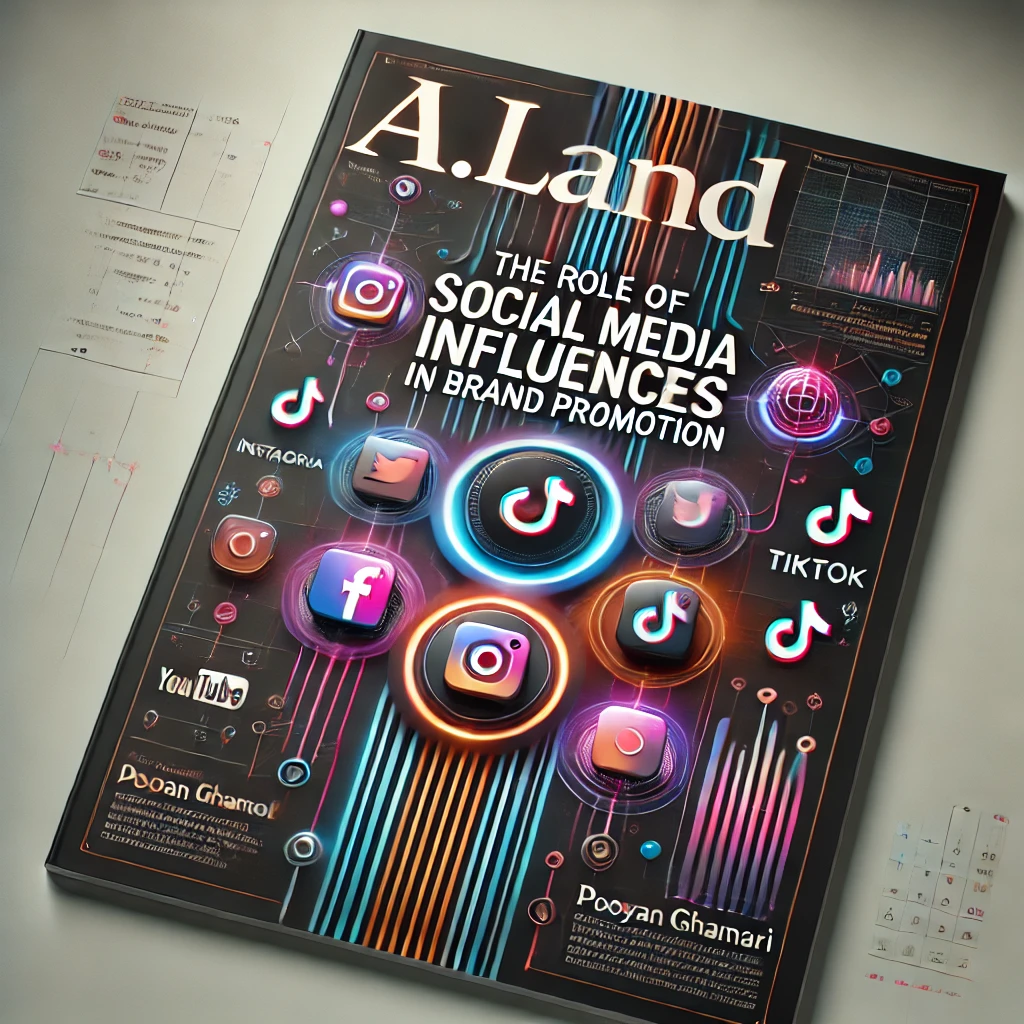The Role of Social Media Influencers in Brand Promotion | Strategic Analysis by Dr. Pooyan Ghamari
- Published Date: 14th Feb, 2025
-
5★ ★ ★ ★ ★(7216)

The Role of Social Media Influencers in Brand Promotion: A Strategic Analysis
By Dr. Pooyan Ghamari, Swiss Economist & Founder of A.Land Platform
Social media influencers have evolved into powerful economic agents, shaping consumer behavior, market trends, and investment strategies. Beyond marketing, they represent a shift in economic influence, digital trust, and branding efficiency. Their impact extends across industries, from real estate to luxury goods, creating new investment opportunities and disrupting traditional business models.
The Shift from Traditional Marketing to Influencer-Driven Economies
Brand promotion was once dictated by corporate advertising budgets and media gatekeepers. Today, influencers—individuals with engaged followings—have overtaken conventional brand messaging. The global influencer economy is now valued at over $21 billion (2024), demonstrating its viability as a mainstream marketing force.
Unlike traditional advertising, influencer marketing thrives on personalized engagement, authenticity, and community trust. Rather than passive consumption, audiences actively interact, shaping demand. This shift aligns with broader economic decentralization, where individual creators and niche communities replace mass-market media monopolies.
Micro-Influencers & The Power of Niche Audiences
Large-scale celebrity endorsements are no longer the primary drivers of consumer behavior. The rise of micro- and nano-influencers (1K–100K followers) has transformed brand outreach, delivering engagement rates up to 5x higher than macro-influencers.
Case Study: Daniel Wellington, a watch brand, built a $230M+ empire by leveraging thousands of micro-influencers instead of a few celebrities. This distributed approach reduced acquisition costs, increased trust, and converted niche audiences into long-term brand advocates.
The principle extends beyond consumer goods. In real estate, micro-influencers specializing in architecture, design, or luxury travel position properties as aspirational investments, attracting global buyers. A.Land leverages localized influencers in Dubai, Singapore, and Zurich, successfully matching ultra-high-net-worth individuals with exclusive properties.
Trust as Currency: The Economics of Authenticity
Consumer trust is the defining economic variable in influencer marketing. Unlike corporate advertisements, influencers build parasocial relationships—where audiences perceive them as peers rather than brands.
Data supports this shift:
• 49% of consumers make monthly purchases based on influencer recommendations.
• Influencer marketing reduces customer acquisition costs by up to 40%.
However, authenticity is fragile. A single inconsistent brand alignment can erode trust, leading to disengagement. Gen Z and younger Millennials prioritize brands that align with their values, making mission-driven influencer partnerships essential.
Luxury brands such as Fenty Beauty, Tesla, and Hermès excel by collaborating with influencers who naturally embody their ethos. Real estate developers are adopting similar strategies, partnering with content creators who live in or actively engage with premium property markets, enhancing perceived value through authentic storytelling.
AI and Virtual Influencers: The Future of Brand Engagement
AI-driven analytics redefine influencer marketing by predicting consumer preferences, content performance, and engagement potential. AI can optimize campaign strategies, audience targeting, and performance measurement, improving ROI and scalability.
Virtual influencers like Lil Miquela generate $12M annually for brands like Prada, proving that digitally created personas can drive engagement and influence purchasing behavior.
For industries like real estate and investment, AI-powered influencer campaigns streamline:
• Luxury property targeting based on AI-analyzed consumer behavior.
• Predictive pricing models, ensuring brand investments align with high-yield market trends.
• Automated influencer performance tracking, optimizing marketing spend.
However, human influencers remain irreplaceable in industries reliant on emotional storytelling and community trust. The most effective strategy is a hybrid model—blending AI-driven insights with authentic human creators to enhance engagement without compromising trust.
The Rise of Social Commerce: A $1.2 Trillion Market Opportunity
Social commerce—the direct integration of e-commerce into social media platforms—has revolutionized consumer purchasing behavior.
• TikTok Shop and Instagram Checkout drive over $62B in sales annually.
• Live shopping events hosted by influencers increase conversions by 20-30% compared to traditional e-commerce.
• 41% of consumers now use TikTok and YouTube as search engines, replacing Google for product discovery.
Luxury and real estate industries are adapting to this trend by implementing:
• Influencer-led virtual property tours, bridging high-net-worth buyers with exclusive listings.
• NFT-based real estate assets, democratizing property ownership and increasing liquidity.
• AI-driven content discovery, ensuring investment opportunities reach the right audiences in real-time.
Long-Term Partnerships vs. One-Off Collaborations
Short-term influencer campaigns boost visibility but rarely sustain engagement. Brand equity requires consistency—long-term ambassador programs increase customer retention by over 34%.
Successful examples include:
• Sephora’s influencer collective, leading to a significant rise in repeat customers.
• Nike’s decade-long collaborations with athlete-influencers, strengthening its dominance in sports branding.
• A.Land’s real estate influencer network, consistently promoting investment-grade properties through trusted, long-term content creators.
Sustained partnerships create lasting credibility, reduce marketing volatility, and stabilize influencer-driven ROI—essential for businesses operating in uncertain economic environments.

